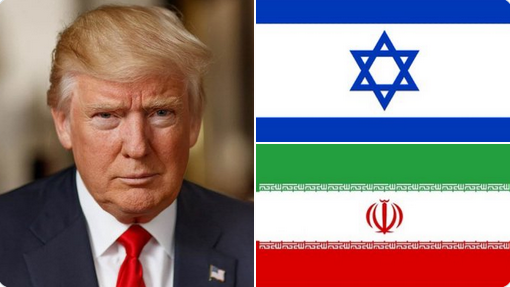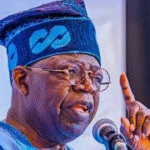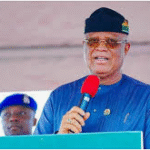In a dramatic turn of events, Pakistan on Sunday issued a strong condemnation of U.S. President Donald Trump’s airstrikes on Iranian nuclear facilities, calling the attacks a violation of international law and a dangerous escalation of regional tensions.
The denunciation came just a day after Islamabad publicly announced plans to nominate Trump for the Nobel Peace Prize, citing his role in de-escalating hostilities between Pakistan and India.
The apparent contradiction in Pakistan’s stance has sparked confusion and debate among political analysts and foreign policy observers, raising questions about the country’s diplomatic strategy amid rising Middle East tensions and shifting global alliances.
On Saturday, Pakistan’s Ministry of Foreign Affairs revealed its intention to nominate Trump for the 2025 Nobel Peace Prize, crediting his “strategic foresight and robust diplomatic engagement” for diffusing a volatile border conflict between India and Pakistan in May. The brief but intense clash between the two nuclear-armed neighbors, which lasted four days, had threatened to spiral into full-scale war before a ceasefire was brokered—an effort that Pakistan attributed directly to Trump’s intervention.
“The President of the United States displayed stellar statesmanship during a period of heightened regional instability,” said a spokesperson for the ministry. “His mediation efforts brought calm to a deeply dangerous situation, and for that, he deserves global recognition.”
But less than 24 hours later, Pakistan issued a sharply worded statement condemning Trump’s decision to launch airstrikes on Iranian nuclear facilities.
“The unprecedented escalation of violence through aggression against Iran is deeply disturbing,” the statement read. “Any further escalation will have catastrophic consequences for regional peace and global stability. Diplomacy, not war, must remain the path forward.”
The abrupt shift in tone reflects the delicate balancing act Pakistan is attempting as it navigates multiple volatile relationships in the region. The country has long positioned itself as a key player in mediating disputes in South Asia, particularly between India and Pakistan, but also maintains close historical, cultural, and economic ties with neighboring Iran.
Tensions between Iran and the United States have been building over recent months, with Iran expanding its nuclear program and Washington warning of consequences. The recent strikes ordered by President Trump targeted what U.S. officials claim were sites related to Iran’s nuclear weapons development program, but Tehran insists they were peaceful research facilities.
Pakistan’s denunciation of the U.S. action aligns with its broader foreign policy stance, which has consistently condemned unilateral military interventions and called for peaceful resolution of conflicts through multilateral frameworks like the United Nations.
In reiterating Iran’s right to self-defense, Pakistan is signaling support for its neighbor while also attempting to preserve its newfound rapport with Washington—a tightrope that could become increasingly difficult to walk.
Strategic Calculations?
Some observers believe Pakistan’s nomination of Trump for the Nobel Peace Prize may have been a calculated diplomatic move to curry favor with the former president amid rising instability in the region, particularly in the aftermath of Israel’s continued military actions in Gaza and Lebanon, and its hostile posture toward Iran.
“Pakistan likely hoped to influence Trump’s approach to the Israel-Iran standoff by appealing to his ego,” said Dr. Ayesha Khan, a foreign policy analyst based in Islamabad. “But by Sunday, when the bombs fell on Iran, the government had no choice but to take a firm public stand.”
Pakistan has consistently denounced Israeli strikes in the region, branding them as breaches of international law and a threat to global security. Trump’s decision to strike Iran has, therefore, placed Islamabad in an awkward diplomatic position.
India’s Response and U.S. Silence
While Pakistan praised Trump’s role in de-escalating the recent India-Pakistan border skirmish, India has offered a starkly different version of events. Indian officials maintain that the ceasefire was the result of direct bilateral talks between military officials, not U.S. intervention.
New Delhi has so far remained silent on Pakistan’s decision to nominate Trump for the Peace Prize.
Trump himself has continued to express frustration over not being awarded the Nobel, despite what he claims are his contributions to global peace. In a recent social media post, he listed several achievements—including the Abraham Accords, normalized relations between Israel and several Arab nations, and a series of international de-escalation efforts—as reasons he deserves the honor.
“I won’t get a Nobel Peace Prize no matter what I do,” he wrote, referencing what he claims is political bias among the award committee.
Governments are permitted to nominate individuals for the Nobel Peace Prize, and while Pakistan’s nomination is likely to carry symbolic rather than material weight, it highlights the complex web of diplomacy, personal ambition, and geopolitical interests currently shaping South Asia and the Middle East.
As of press time, the U.S. State Department has not issued a response to Pakistan’s condemnation, nor has the Trump campaign commented on the nomination or the Iranian airstrikes.
The episode underscores the increasingly unpredictable nature of international diplomacy, especially in a world where traditional alliances are fraying and new ones are forming based on pragmatic rather than ideological grounds.
“Pakistan is trying to leverage every diplomatic tool at its disposal,” said Dr. Khan. “But walking the line between Tehran and Washington—while keeping New Delhi in check—requires a level of finesse that will be hard to sustain if the region continues to spiral.”
With tensions escalating and the 2026 U.S. presidential election looming, Trump’s foreign policy decisions—especially those involving the Middle East and South Asia—are likely to remain under intense scrutiny.



